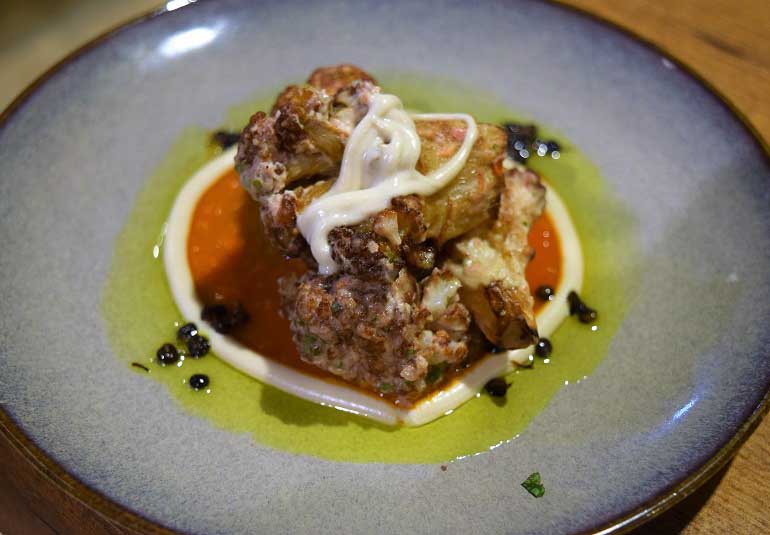
The Jewish festival of Hanukkah seems like a good time to tell you about a restaurant where recipes from the Bible come to life. It is rather apt that The Eucalyptus is located in Jerusalem, a place considered holy by Jews, Christians and Muslims.

It was a breezy summer night when I chose a table at the al fresco section of the restaurant, nestled in the Artist Quarter close to the Old City. In fact, I watched the end of the colourful water fountain show on the periphery of the Tower of David just before making it to the restaurant.

The owner, Chef Moshe Basson believes in the art of slow cooking and the importance of local herbs to add flavour to food. At The Eucalyptus, he presents a modern take on Biblical cuisine. Armed with fragrant bunches of herbs in his hands, he joined us at our table to offer a glimpse of how the restaurant came about.
Basson was very interested in what people ate during Biblical times and he began researching the dishes, spices and herbs that found a place in the holy text. Basson found that many of them still grew in Jerusalem and Judea’s hills. It was just that people had forgotten about them.

I listened to Basson, while tucking into roasted cauliflower, oriental cevice and fire-roasted eggplant with aged pomegranate syrup. The flavours and textures exploded in my mouth even as the mellow spirit of Jerusalem in the evening added an invisible flourish to my meal.
The main restaurant is housed in an old stone building whose balcony affords spectacular views of the sunset. There, a huge dinner party performed the maqlouba ritual under Basson’s supervision.
Maqlouba is a kind of biryani that’s cooked upside down with layered rice, vegetables and chicken. But before tipping it over, one moves their hands over the tureen seven times, with the dinner party reciting seven Jewish incantations. Then, you make a wish and tip over the maqlouba. If it ends up perfectly on the serving dish, your wish might just come true!
I was fortunate enough to perform a mini-version of the maqlouba wish-granting ritual at our table, but before that, I made the most of the “espresso soup glasses” that allowed us to sample various delicious soups on the menu. My favourite was the artichoke soup with almond cream.
Speaking about drinks, people did trip on wine even in Biblical times. So we tried an Israeli Cabernet Sauvignon called Teperberg "Vision" 2016 and a Shapiro wheat beer from Beit Shemesh. They went excellently with the wonderful local bread and three kinds of flavourful dips.
The mains were a blur of wonderful eggplant and meat steaks and couscous with divine stuffed figs and pate macaroons making up the sweet ending. But the point is, that you need to book a ticket to Jerusalem as soon as possible and fill your tummy with all those Biblical temptations.
Psst..If you go in winter, you could even sign up for a cooking class.
Address: The Eucalyptus Restaurant Felt alley (between Hativat Yerushalayim 14 and Dror Eliel st.), Jerusalem 9411714
Opening Hours: Mon-Fri and Sun, 5-11pm
Website: http://www.the-eucalyptus.com
For now, make a culinary journey to Israel with Chef Vicky Ratnani and Gil Hovav’s recipe for zalabia, or schug as it is more popularly known in Israel:
1. For the Schug, put coriander, chillies, garlic, salt, pepper and cardamom powder in the grinder and blend it up. Prior warning, Itis quite hot.
2. For the Zalabia, keep your flour mixture of salt, yeast, flour, water and oil ready and rested. Now fry them lightly brown. Enjoy!

